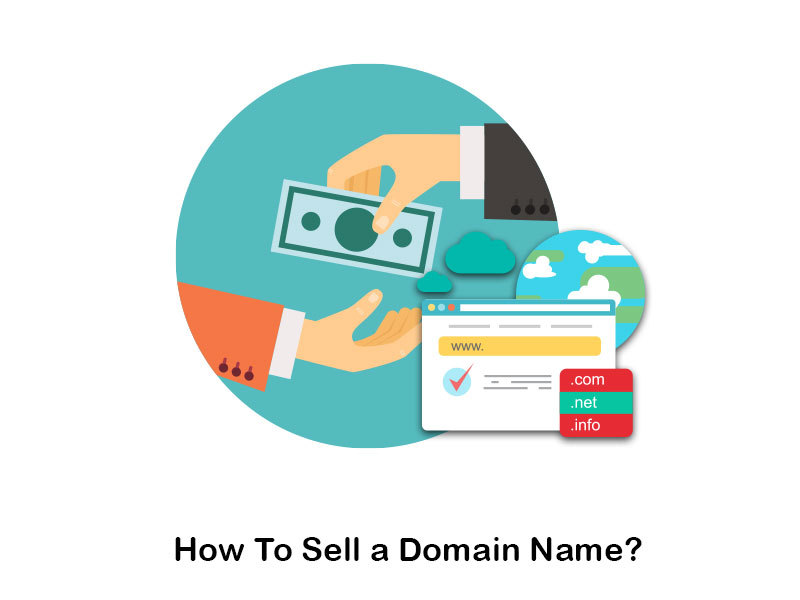Unlocking the Value of Your Online Real Estate
Domain names have become a highly sought-after commodity in the digital age. As the internet continues to play an increasingly important role in modern life, the value of a well-chosen domain name has skyrocketed. For those looking to capitalize on this trend, selling a domain name can be a lucrative venture. But before diving into the world of domain name sales, it’s essential to understand the concept of domain name value and how to unlock its full potential.
A domain name is more than just a web address – it’s a brand, a identity, and a key to unlocking online success. A premium domain name can make all the difference in establishing a strong online presence, driving traffic, and generating revenue. With the rise of e-commerce, online marketing, and digital entrepreneurship, the demand for high-quality domain names has never been higher.
So, how do you sell a domain name and maximize its value? The first step is to understand the factors that affect domain name value. These include keyword relevance, brandability, search engine rankings, and market demand. By understanding these factors, you can determine the true value of your domain name and set a competitive price.
For those looking to sell a domain name, it’s essential to stay up-to-date with the latest market trends and developments. This includes monitoring domain name sales, tracking industry news, and staying informed about changes in search engine algorithms. By staying ahead of the curve, you can ensure that your domain name is positioned for maximum value and appeal to potential buyers.
Whether you’re a seasoned domain name investor or just starting out, selling a domain name requires a strategic approach. By understanding the value of your domain name, staying informed about market trends, and presenting your domain in the best possible light, you can unlock its full potential and achieve a successful sale.
Preparing Your Domain for Sale: Tips and Strategies
When it comes to selling a domain name, preparation is key. A well-prepared domain name can make all the difference in attracting potential buyers and securing a successful sale. So, how do you prepare your domain name for sale? The first step is to determine its value. This can be done by using online appraisal tools, consulting with a domain name broker, or researching similar domain name sales.
Once you have determined the value of your domain name, it’s essential to price it competitively. This means researching the market, understanding the demand for similar domain names, and setting a price that is attractive to potential buyers. It’s also important to consider the costs associated with selling a domain name, such as transfer fees and escrow services.
In addition to pricing, it’s crucial to create a professional sales page for your domain name. This should include a clear and concise description of the domain name, its value, and its potential uses. It’s also essential to showcase the domain name’s unique features and benefits, such as its keyword relevance, brandability, and search engine rankings.
Social media can also play a significant role in promoting your domain name and attracting potential buyers. By utilizing platforms like Twitter, Facebook, and LinkedIn, you can reach a wider audience and generate interest in your domain name. It’s also important to engage with potential buyers, respond to inquiries, and provide additional information as needed.
When preparing your domain name for sale, it’s also essential to consider the sales process. This includes understanding the different sales platforms available, such as online marketplaces and private sales, and choosing the best option for your domain name. It’s also important to be prepared to negotiate and respond to offers, counteroffers, and closing the deal.
By following these tips and strategies, you can prepare your domain name for sale and increase its chances of success. Remember to stay focused on the buyer’s needs, be flexible and open-minded, and provide excellent customer service. With the right preparation and approach, you can sell your domain name for maximum profit and achieve your goals.
How to Determine the Value of Your Domain Name
Determining the value of a domain name is a crucial step in the sales process. It’s essential to understand the factors that affect domain name value, such as keyword relevance, brandability, and search engine rankings. By understanding these factors, you can determine the true value of your domain name and set a competitive price.
Keyword relevance is a critical factor in determining domain name value. A domain name that is closely related to a popular keyword or phrase can be highly valuable. For example, a domain name like “insurance.com” or “travel.com” can be extremely valuable due to its relevance to a popular search term.
Brandability is another important factor in determining domain name value. A domain name that is easy to remember, easy to spell, and easy to pronounce can be highly valuable. For example, a domain name like “google.com” or “amazon.com” is highly valuable due to its brandability.
Search engine rankings are also an important factor in determining domain name value. A domain name that is ranked highly in search engine results can be highly valuable. For example, a domain name that is ranked #1 in Google for a popular search term can be extremely valuable.
There are various tools and methods available for appraising domain name value, including online appraisal tools and consulting with a domain name broker. Online appraisal tools, such as GoDaddy’s Domain Name Value Tool or Sedo’s Domain Appraisal Tool, can provide an estimate of a domain name’s value based on its keyword relevance, brandability, and search engine rankings.
Consulting with a domain name broker can also provide valuable insights into a domain name’s value. A domain name broker can provide an expert opinion on a domain name’s value based on their experience and knowledge of the market.
When determining the value of your domain name, it’s essential to consider multiple factors and use a combination of tools and methods. By doing so, you can determine the true value of your domain name and set a competitive price.
Choosing the Right Sales Platform for Your Domain
When it comes to selling a domain name, choosing the right sales platform is crucial. There are several options available, each with its own pros and cons. In this section, we’ll discuss the various sales platforms available for selling domain names, including online marketplaces, private sales, and auctions.
Online marketplaces like Sedo and Uniregistry are popular options for selling domain names. These platforms provide a large pool of potential buyers and offer a range of tools and services to help facilitate the sales process. Sedo, for example, offers a domain name appraisal tool, a sales page builder, and a secure payment system. Uniregistry, on the other hand, offers a domain name brokerage service, a sales page builder, and a secure payment system.
Private sales are another option for selling domain names. This involves selling the domain name directly to a buyer, without the use of a third-party platform. Private sales can be a good option for domain name owners who want to maintain control over the sales process and avoid paying commission fees. However, private sales can also be more time-consuming and may require more effort to find a buyer.
Auctions are a third option for selling domain names. This involves listing the domain name for sale on an auction platform, such as GoDaddy Auctions or NameJet. Auctions can be a good option for domain name owners who want to create a sense of urgency and excitement around the sale of their domain name. However, auctions can also be unpredictable and may not always result in a sale.
When choosing a sales platform, it’s essential to consider the fees associated with each option. Online marketplaces like Sedo and Uniregistry typically charge a commission fee on the sale price of the domain name. Private sales, on the other hand, do not involve commission fees. Auctions may also involve fees, such as listing fees and commission fees.
Ultimately, the choice of sales platform will depend on the specific needs and goals of the domain name owner. By considering the pros and cons of each option, domain name owners can choose the best sales platform for their needs and increase their chances of a successful sale.
Crafting a Compelling Sales Pitch for Your Domain
A well-crafted sales pitch is essential for selling a domain name. It’s what sets your domain apart from others and convinces potential buyers to make a purchase. So, how do you create a compelling sales pitch for your domain name?
First, it’s essential to understand your target audience. Who are the potential buyers for your domain name? What are their needs and goals? By understanding your target audience, you can tailor your sales pitch to their specific needs and increase the chances of a successful sale.
Next, it’s crucial to highlight the unique features and benefits of your domain name. What makes your domain name stand out from others? Is it a premium keyword? Does it have a strong brand identity? By highlighting the unique features and benefits of your domain name, you can differentiate it from others and increase its value.
Showcasing the potential for growth and development is also essential. How can the buyer use the domain name to grow their business or brand? What opportunities does the domain name present? By showcasing the potential for growth and development, you can demonstrate the value of the domain name and increase its appeal to potential buyers.
Using persuasive language and storytelling techniques can also help to create a compelling sales pitch. Use vivid imagery and descriptive language to paint a picture of the domain name’s potential. Use storytelling techniques to create an emotional connection with the buyer and increase the chances of a successful sale.
Finally, it’s essential to include a clear call-to-action in your sales pitch. What do you want the buyer to do next? How can they purchase the domain name? By including a clear call-to-action, you can encourage the buyer to take action and increase the chances of a successful sale.
By following these tips and techniques, you can create a compelling sales pitch for your domain name and increase its chances of success. Remember to stay focused on the buyer’s needs, highlight the unique features and benefits of the domain name, and showcase its potential for growth and development.
Negotiating the Sale of Your Domain Name
Negotiating the sale of a domain name can be a complex and challenging process. It requires a combination of strategy, creativity, and effective communication. In this section, we’ll provide tips and strategies for negotiating the sale of your domain name, including how to respond to offers, counteroffers, and closing the deal.
When negotiating the sale of your domain name, it’s essential to be flexible and open-minded. Be willing to consider different offers and counteroffers, and be prepared to negotiate the terms of the sale. Remember, the goal is to reach a mutually beneficial agreement that satisfies both parties.
One of the most critical aspects of negotiating the sale of a domain name is responding to offers. When receiving an offer, take the time to carefully review it and consider the terms. If the offer is not satisfactory, be prepared to make a counteroffer that meets your needs. Remember to stay calm and professional during the negotiation process, and avoid getting emotional or attached to a particular outcome.
Counteroffers are a common part of the negotiation process. When making a counteroffer, be sure to clearly communicate your terms and expectations. Be prepared to negotiate and find a mutually beneficial agreement. Remember, the goal is to reach a deal that satisfies both parties.
Closing the deal is the final step in the negotiation process. Once an agreement has been reached, be sure to clearly communicate the terms and expectations to all parties involved. Ensure that all necessary paperwork and documentation are completed, and that the transfer of ownership is smooth and efficient.
Effective communication is critical during the negotiation process. Be sure to clearly communicate your needs and expectations, and be open to feedback and suggestions from the other party. Remember to stay calm and professional, and avoid getting emotional or attached to a particular outcome.
By following these tips and strategies, you can effectively negotiate the sale of your domain name and reach a mutually beneficial agreement. Remember to stay flexible and open-minded, and be prepared to negotiate the terms of the sale. With the right approach, you can successfully sell your domain name and achieve your goals.
Transferring Ownership and Ensuring a Smooth Sale
Once the sale of your domain name has been finalized, it’s essential to transfer ownership to the buyer. This process can be complex and requires careful attention to detail to ensure a smooth sale. In this section, we’ll explain the process of transferring ownership of a domain name, including the role of escrow services and the importance of verifying the buyer’s identity.
The first step in transferring ownership of a domain name is to verify the buyer’s identity. This is crucial to ensure that the buyer is legitimate and to prevent any potential disputes. You can verify the buyer’s identity by requesting identification documents, such as a driver’s license or passport.
Once the buyer’s identity has been verified, you can proceed with the transfer of ownership. This typically involves updating the domain name’s registration information to reflect the buyer’s details. You may need to provide the buyer with the necessary documentation, such as the domain name’s registration certificate, to complete the transfer.
Escrow services can play a crucial role in ensuring a smooth sale. An escrow service acts as a third-party intermediary, holding the payment until the transfer of ownership has been completed. This provides an added layer of security for both the buyer and seller, ensuring that the payment is only released once the transfer has been successfully completed.
When transferring ownership of a domain name, it’s essential to ensure that all necessary paperwork and documentation are completed. This includes updating the domain name’s registration information, transferring the domain name to the buyer’s registrar, and providing the buyer with the necessary documentation.
By following these steps and using an escrow service, you can ensure a smooth sale and transfer of ownership of your domain name. Remember to stay organized, communicate clearly with the buyer, and verify the buyer’s identity to prevent any potential disputes.
Transferring ownership of a domain name can be a complex process, but with the right guidance and support, you can ensure a successful sale. By understanding the process and taking the necessary steps, you can transfer ownership of your domain name with confidence.
Maximizing Your Profits: Tax Implications and More
When selling a domain name, it’s essential to consider the tax implications to maximize your profits. In this section, we’ll discuss the tax implications of selling a domain name, including capital gains tax and other considerations.
Capital gains tax is a significant consideration when selling a domain name. The tax rate will depend on the length of time you’ve held the domain name and the profit made from the sale. If you’ve held the domain name for less than a year, you’ll be subject to short-term capital gains tax, which is typically higher than long-term capital gains tax.
To minimize tax liabilities, it’s essential to keep accurate records of your domain name’s purchase and sale prices, as well as any expenses related to the domain name. You may also be able to deduct certain expenses, such as domain name registration fees and marketing expenses, from your taxable income.
In addition to tax implications, there are other post-sale considerations to keep in mind. For example, you may need to update your domain name’s registration information and transfer the domain name to the buyer’s registrar. You may also need to provide the buyer with any necessary documentation, such as the domain name’s registration certificate.
To maximize your profits, it’s essential to stay organized and keep track of all the necessary paperwork and documentation. You may also want to consider consulting with a tax professional or accountant to ensure you’re taking advantage of all the available tax deductions and credits.
By understanding the tax implications of selling a domain name and taking steps to minimize tax liabilities, you can maximize your profits and achieve a successful sale. Remember to stay informed and seek professional advice when needed to ensure a smooth and profitable transaction.
In conclusion, selling a domain name can be a complex process, but with the right guidance and support, you can achieve a successful sale and maximize your profits. By understanding the value of your domain name, preparing it for sale, and navigating the sales process, you can unlock the full potential of your online real estate and achieve your goals.







